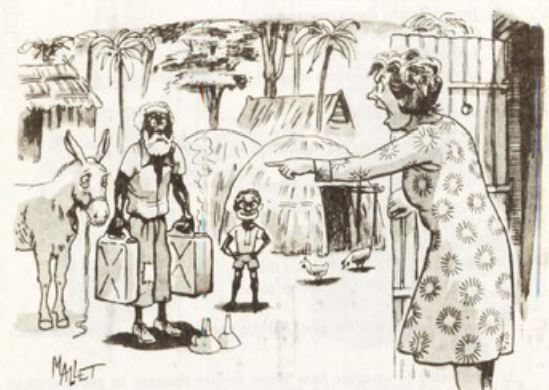

Grammar


Tenses


Present

Present Simple

Present Continuous

Present Perfect

Present Perfect Continuous


Past

Past Simple

Past Continuous

Past Perfect

Past Perfect Continuous


Future

Future Simple

Future Continuous

Future Perfect

Future Perfect Continuous


Parts Of Speech


Nouns

Countable and uncountable nouns

Verbal nouns

Singular and Plural nouns

Proper nouns

Nouns gender

Nouns definition

Concrete nouns

Abstract nouns

Common nouns

Collective nouns

Definition Of Nouns


Verbs

Stative and dynamic verbs

Finite and nonfinite verbs

To be verbs

Transitive and intransitive verbs

Auxiliary verbs

Modal verbs

Regular and irregular verbs

Action verbs


Adverbs

Relative adverbs

Interrogative adverbs

Adverbs of time

Adverbs of place

Adverbs of reason

Adverbs of quantity

Adverbs of manner

Adverbs of frequency

Adverbs of affirmation


Adjectives

Quantitative adjective

Proper adjective

Possessive adjective

Numeral adjective

Interrogative adjective

Distributive adjective

Descriptive adjective

Demonstrative adjective


Pronouns

Subject pronoun

Relative pronoun

Reflexive pronoun

Reciprocal pronoun

Possessive pronoun

Personal pronoun

Interrogative pronoun

Indefinite pronoun

Emphatic pronoun

Distributive pronoun

Demonstrative pronoun


Pre Position


Preposition by function

Time preposition

Reason preposition

Possession preposition

Place preposition

Phrases preposition

Origin preposition

Measure preposition

Direction preposition

Contrast preposition

Agent preposition


Preposition by construction

Simple preposition

Phrase preposition

Double preposition

Compound preposition


Conjunctions

Subordinating conjunction

Correlative conjunction

Coordinating conjunction

Conjunctive adverbs


Interjections

Express calling interjection


Grammar Rules

Passive and Active

Preference

Requests and offers

wishes

Be used to

Some and any

Could have done

Describing people

Giving advices

Possession

Comparative and superlative

Giving Reason

Making Suggestions

Apologizing

Forming questions

Since and for

Directions

Obligation

Adverbials

invitation

Articles

Imaginary condition

Zero conditional

First conditional

Second conditional

Third conditional

Reported speech


Linguistics

Phonetics

Phonology

Linguistics fields

Syntax

Morphology

Semantics

pragmatics

History

Writing

Grammar

Phonetics and Phonology

Semiotics


Reading Comprehension

Elementary

Intermediate

Advanced


Teaching Methods

Teaching Strategies

Assessment
A new bath
المؤلف:
L.A Hill
المصدر:
Advanced steps to understanding
الجزء والصفحة:
8-1
13-8-2022
914

Many years ago an English lady in Africa was invited by an important local chief to be the first person to use his new bath-the first one in that part of Africa.
The lady went into the bath-house, turned on the taps and got into the nice, warm water. But when she looked up, she was frightened to see an eye watching her through a hole. She got out, dressed and ran outside. She saw an old man and a donkey there. He was carrying a petrol tin of hot water in one hand, and one of cold water in the other, and in front of him were two funnels.
"Why were you watching me in my bath?" the lady asked him angrily
The man answered politely. I have to see which tap you turn on madam, or I don't know whether to pour in hot or cold water.
A Which of these sentences are true (T) and which are false (F)? Write T or F in the boxes.
1-The English lady had never been in a real bath in that part of Africa before.
2-The water came out of the taps as usual.
3-The lady was afraid when she saw an animal in a hole in the bathroom.
4-She ran out and saw a man carrying petrol to heat the water.
5-The old man was looking at the lady because he did not often see white women.
6-The bath did not have running hot and cold water unless the old man was there.
B Answer these questions
1-What was the English lady invited to do?
2-What did she do?
3-What gave her a fright?
4-What did she do about it?
5-What did she see when she went out?
6-What was he doing?
7-What did the lady ask him?
8-And what did he answer?
C Opposites: Put a word beginning with im, in, ir or un, or a word ending in less, in each space.
1-The English lady was not a patient woman: she was an …..one.
2-She was not fair to the old man: she was ... to him.
3-If he did not look through the hole, he would not be able to see which tap the lady was turning: he would be... to see it.
4-When she thought about it, she realized that she had not been very just to him: in fact, she had been very ....
5-She had not given him justice: she had done him an....
6-There was no running water, so it was not useful to connect the taps to pipes: it was... to do so.
7-It was not possible to get running water in that place: it was quite ... to do this.
8-The lady had bath is at regular times every day: she never had a bath at an ... time.
 الاكثر قراءة في Advanced
الاكثر قراءة في Advanced
 اخر الاخبار
اخر الاخبار
اخبار العتبة العباسية المقدسة

الآخبار الصحية















 "المهمة".. إصدار قصصي يوثّق القصص الفائزة في مسابقة فتوى الدفاع المقدسة للقصة القصيرة
"المهمة".. إصدار قصصي يوثّق القصص الفائزة في مسابقة فتوى الدفاع المقدسة للقصة القصيرة (نوافذ).. إصدار أدبي يوثق القصص الفائزة في مسابقة الإمام العسكري (عليه السلام)
(نوافذ).. إصدار أدبي يوثق القصص الفائزة في مسابقة الإمام العسكري (عليه السلام) قسم الشؤون الفكرية يصدر مجموعة قصصية بعنوان (قلوب بلا مأوى)
قسم الشؤون الفكرية يصدر مجموعة قصصية بعنوان (قلوب بلا مأوى)


















